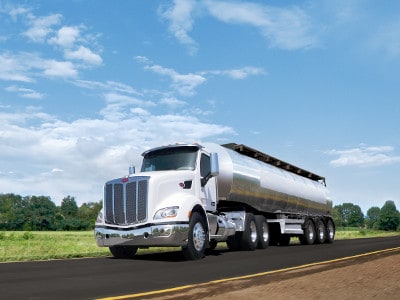
 Loop Energy, a Vancouver company that provides zero-emission power systems for heavy-duty transport, has introduced a new range-extender (REX) power module for electric transport vehicles, which the company claims significantly improves performance, durability and cost through its unique fuel cell design.
Loop Energy, a Vancouver company that provides zero-emission power systems for heavy-duty transport, has introduced a new range-extender (REX) power module for electric transport vehicles, which the company claims significantly improves performance, durability and cost through its unique fuel cell design.
The power module has been under development for three years, and is now being integrated by an unnamed original equipment manufacturer to begin in-service operation in 2017.
“This is a defining moment for Loop as we advance the transit and trucking sectors forward in terms of their ability to meet performance, cost and large-scale carbon reduction targets,” said Ben Nyland, President and CEO of Loop Energy. “We’ve found that our technology is a perfect fit for powering heavy-duty transit buses and Class 6 to 8 trucks with zero emissions.”
The Loop 56kW fuel cell power module is turn-key, containing the air compressor and controls, and enabling a drop-in solution for manufacturers of heavy-duty trucks and transit buses that require increased power and range for a reduced cost, offering a power density of 213 W/L to boost the range of battery electric vehicles by more than a factor of three.
“Loop’s range extender system has unlocked the cost, power, efficiency and durability parameters customers require for their heavy-duty electric powertrain systems,” said Rob Wingrove, Director of Product Development for Loop Energy. “We can reduce the size of the battery pack and the fuel cell, thereby closing the economic gap with fossil-fuel powertrains.”
Battery-electric system capacity for trucks and buses using on-board hydrogen fuel can be increased with fuel cell range extenders, or auxiliary power units, using the Loop module which enhances power density while also lowering cost, making range extension economically viable for a broad array of applications.
“This is a defining moment for Loop as we advance the transit and trucking sectors forward in terms of their ability to meet performance, cost and large-scale carbon reduction targets,” said Ben Nyland, President and CEO of Loop Energy. “We’ve found that our technology is a perfect fit for powering heavy-duty transit buses and Class 6 to 8 trucks with zero emissions.”
Loop’s patented eFlow fuel cell features a design which optimizes internal air flow, producing greater power density than industry-standard fuel cells, resulting in a higher power density and facilitating a significant increase in the efficiency of the fuel cell stack and system.
In May, Loop announced a collaboration agreement with Hunan CRRC Times Electric Vehicle Co., Ltd. (a subsidiary of CRRC Corporation Ltd.), to develop a project that will help the Chinese company’s electric drivetrain system to provide a better performing solution than traditional diesel engines for heavy-duty trucks.
In February, Loop Energy changed its name from Power Disc Development Corp. and announced that its goal was to replace the diesel engine with their Loop heavy-duty powertrain, designed around the company’s patented eFlow technology which combines an electric battery with a hydrogen fuel cell and produces only water vapour as exhaust.
“We see a world where we no longer have to burn oil to move things,” said Nyland at that time. “A world where we create the power we need by working with natural cycles.”
In March, Loop Energy picked up a C$7.5 million grant from Sustainable Development Technology Canada (SDTC) to help develop that technology.
Leave a Reply
You must be logged in to post a comment.




 Share
Share Tweet
Tweet Share
Share




Comment